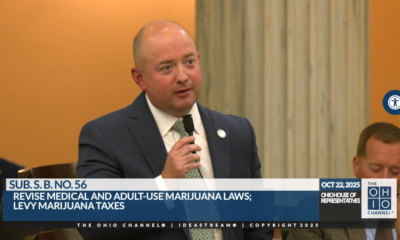The once-booming CBD market is bracing itself for more headwinds as regulatory ambiguity and competition from unregulated products squeeze sales, according to recent earnings reports from major companies in the sector.
Charlotte’s Web (TSX: CWEB) (OTCQX: CWBHF), one of the earliest pioneers in the legal CBD space, posted a 23% year-over-year decline in second-quarter revenue to $12.3 million. The company’s CEO, Bill Morachnick, cited “ongoing headwinds in the CBD market” during the latest earnings call, pointing to the lack of federal regulatory action and the emergence of “inconsistent competitive alternatives, which creates ongoing consumer confusion.”
“As the premium-priced CBD brand, we believe that Charlotte’s Web sales have been impacted more than some of our competitors in the first half of the year,” Morachnick said.
Village Farms International (NASDAQ: VFF), which operates in both the cannabis and CBD sectors, saw similar challenges. Its U.S. CBD sales fell nearly 19% to $4.3 million in the second quarter.
“Our sales continue to be impacted by the proliferation of unregulated hemp-based products, most notably synthetic products,” said Stephen Ruffini, Village Farms’ CFO. By the same token, he noted that increasing state-level restrictions on intoxicating hemp products have negatively affected sales of the company’s CBD offerings.
‘One voice’
The industry’s struggles stem largely from the regulatory limbo that’s persisted since the 2018 Farm Bill legalized hemp production. While that legislation opened the door for CBD products, the Food and Drug Administration has yet to establish a clear regulatory framework for using the molecule in food and dietary supplements.
The vacuum has led to a fragmented market where companies struggle to differentiate themselves from less scrupulous competitors. Village Farms’ CEO, Michael DeGiglio, called for industry-wide cooperation to address all of these issues.
All of the in-fighting and conflicting interests between medical marijuana and hemp “is dividing the industry rather than uniting us,” DeGiglio said on the company’s Thursday earnings call. “We see this currently within the hemp segment, where our subsidiary CBDistillery has developed responsible hemp-based products, yet adjacent businesses are lobbying to ban all hemp.”
He added, “By the way, hemp is the deregulated model that, I would conjecture, we would all like marijuana to follow in the United States, so why are we lobbying against ourselves? We believe these industries can coexist and prosper together, and that both forms of cannabis – hemp and marijuana – have their roles to play in benefiting consumers.”
DeGiglio called for Canadian licensed producers and U.S. multistate operators “to all work together with us to speak as one voice with federal agencies and legislatures.”
And some marijuana companies are taking heed. Big operators such as Curaleaf (TSX: CURA) (OTCQX: CURLF) have opted to hop into intoxicating hemp as well.
Numbers game
The CBD market’s current struggles mark a sharp contrast from the industry’s explosive growth following the 2018 Farm Bill. However, recent data from Brightfield Group, a cannabis and CBD market research firm, paints a more sobering picture of the industry’s trajectory. The firm projects U.S. CBD sales to drop to $3.4 billion in 2024 from $3.8 billion in 2023.
The analysis suggests that the industry’s future hinges largely on federal regulatory reforms. If Congress is able to implement a regulatory framework by the end of 2024, the market could rebound to $4.5 billion in five years. Without it, sales are expected to reach their lowest point in 2026 before recovering to $3.5 billion by 2029.
Executives seem to remain cautiously optimistic about long-term prospects still, particularly if regulatory clarity emerges. However, in the near term, CBD companies face a difficult road ahead.

 California Cannabis Updates1 year ago
California Cannabis Updates1 year ago
 Breaking News1 year ago
Breaking News1 year ago
 best list1 year ago
best list1 year ago
 Business1 year ago
Business1 year ago
 Business1 year ago
Business1 year ago
 cbd1 year ago
cbd1 year ago
 Bay Smokes1 year ago
Bay Smokes1 year ago
 autoflower seeds1 year ago
autoflower seeds1 year ago
















































